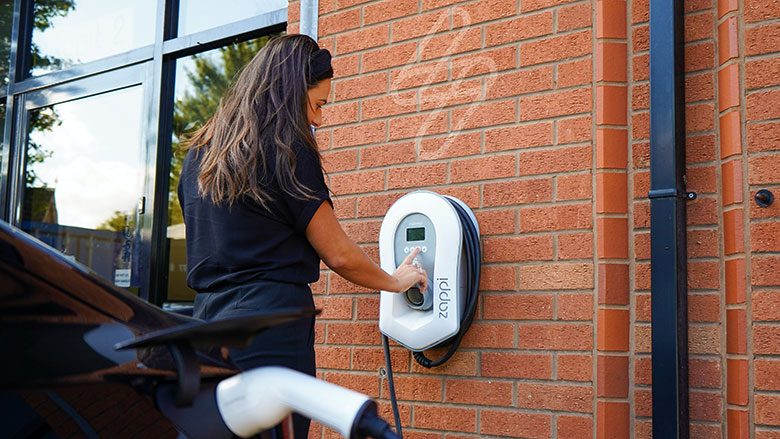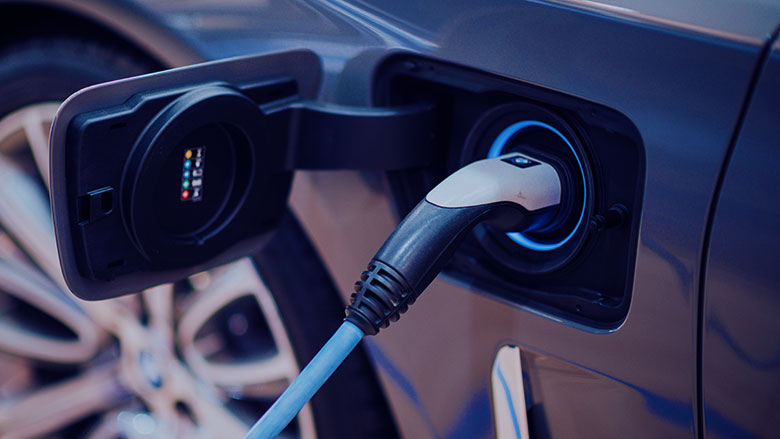Nine out of 10 vehicles in Cardiff are estimated to be electric by 2035, but will electric cars really save the planet?

In a few years’ time, the streets of Cardiff may be completely different from the way they are now. Petrol stations will be a thing of the past, the streets will be populated by cars that are as quiet as a bicycle, and above all the level of pollution will have dropped dramatically.
This seems to be the direction the city could take, especially given the substantial increase in the sale of electric cars. But how far is Cardiff from such a scenario? With less than 100 charging points, the city is currently lagging in terms of infrastructure.
“We’re not moving quick enough. We need a big drive coming from Government at different levels if you’re really going to turn this around,” says Rodney Berman, Penylan Councillor.
“The easiest thing in the world for governments is to set targets to achieve things by certain dates but the setting of the target must be backed up by action and at the moment, I think this is an area where we haven’t seen enough action to date, and we’ve got to change that.”

According to the One Planet report published by Cardiff Council, this move to electric cars is necessary to reduce air pollution, as an estimated 40% of carbon emissions in Cardiff come from transport.
However, the government needs to quickly increase the number of charging points to meet the demand for more electric vehicles in the coming years, otherwise people will have to make do in other ways and more problems could arise as a result.
“The biggest problem we’ve got is that in large parts of Cardiff we have houses where people have to park in the street,” says Rodney Berman, Penylan Councillor.
“And therefore, it’s not practical for them to necessarily charge electric vehicles because you couldn’t run cables from people’s houses across the pavement to where the cars are parked so we need to have public electric vehicle charging points at various points, and we need far more of them than we’ve got at the moment.”
Besides, electric vehicles will not solve other issues such as traffic congestion. Before the pandemic, about 100,000 people commuted to Cardiff every day and about 80,000 of them by car.
“If you give people the easy option of just switching to electric then they will, and then you will still have a lot of problems that we can’t have now,” says Emma Sandrey, Pentwyn Councillor.
Many people suggest that more attention should be paid to not making cars the main means of transport. However, one of the reasons why people prefer to travel by car instead of by bus is that public transport is not considered reliable enough.
“Part of the reason why there isn’t a reliable and sort of punctual public transport system is precisely because of the amount of cars on the road. So, there’s not so much road space and the more the traffic increases, the more difficult it is for buses to get through on those roads and get ahead of that traffic. So what we really need is more bus lanes and best priority measures at traffic lights,” says Emma Sandrey.
Even though lockdown restrictions have significantly restricted movement over the past year, Tomtom estimated that in 2020 in Cardiff, 82 extra hours were spent driving at peak times during the year.
According to Emma a more balanced mix of people cycling, walking, using public transport and finally cars is recommended to make our roads a less busy place. However, this change will only happen if people are aware of it and government policies are aimed at encouraging other travel choices.
However, despite the benefits of reducing CO2 emissions, there are still uncertainties. Whether electric vehicles will be a more sustainable solution is still unknown.
Currently, the technology to dispose these batteries is not available. Given that the first electric cars to arrive on the market on a large-scale date back to 2010, and the average battery life is 10 years, they are now starting to pile up.
According to Dr. Jean-Paul Skeete, Professor of Logistics and Operations Management at Cardiff University, recycling may not be the solution in the future: “The reason recycling isn’t viable right now it’s because it is cheaper to dig the cobalt out of the earth than to recycle it and buy it used.”
At the same time, it is not necessarily true that a cobalt-free battery would also prove successful when it comes to recycling and the problem would remain.
“If you have zero cobalt then the battery becomes much less valuable. The battery is cheaper, more people can buy it and then you solve that problem, but then recycling isn’t worth it anymore. Recycling [the battery] is worth it because the cobalt is so precious that you can sell it back and make a profit,” says Dr. Jean-Paul Skeete.
The advent of electric cars will reduce the emission of greenhouse gases and air pollutants. However, other problems such as road congestion will persist, and new ones may arise due to the recycling of lithium batteries.
“It’s an experiment, we will see if it works,” says Dr. Skeete. “If it does it does, if it doesn’t then we will have to do something else as a society.”
